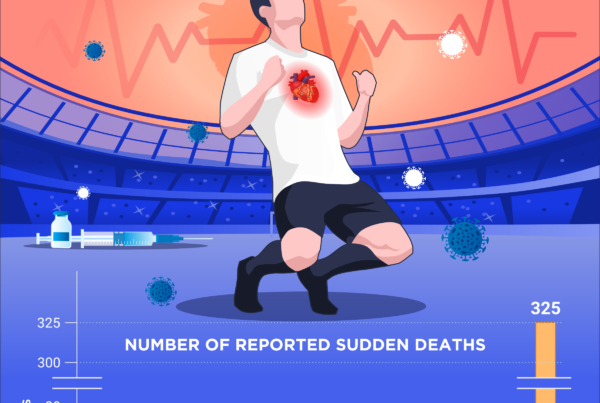
Beyond brain fog, depression and anxiety.
A brain that’s headed for trouble always gives us a heads-up — and it’s best we listen to that inner voice.
The brain is not unlike a battery enclosing a mix of chemicals to produce power (the brain produces enough electrical activity to light a small bulb). Typically, when trouble is brewing the chemistry in this control center goes awry, causing bad things to materialize in the mind.
These chemicals, neurotransmitters among them, also spark excitement about life, fueling passion for the creative process. The mix of brain chemistry creates specific mental-emotional states, including physical and mental energy for life’s tasks and challenges. Sometimes this energy can wane.
The brain’s mental-emotional state also affects behavior. Mental functions include cognitions such as sensations, perception, learning, concept-formation and decision-making. Emotional or affective states include moods such as depression and anxiety, and are associated with pain, motivation and enthusiasm for life. All these can quickly be influenced by our environment — internal (neurotransmitters, the gut, hormones) and external (food, weather, stress). These are some key factors to consider if you wish to improve brain function. And if it’s time to change your mind, this may be the best place to start.
If you’ve been reading my articles for any length of time, or been a patient in my clinic from years past, you’ve likely seen the words depression and anxiety mentioned in text or in surveys as symptoms of poor health. They are early red flags, associated with many potential physical, biochemical and mental-emotional stresses, especially a condition called brain fog.
Brain Fog
As a common cognitive complaint, brain fog is an early warning of a constellation of symptoms. These may include reduced mental acuity and cognition, the inability to concentrate and multitask, and reduced short- and long-term memory. The fog is also part of a wide range of conditions such as chronic fatigue syndrome, celiac disease (and possibly just sensitivity to wheat), fibromyalgia, autism, and early Alzheimer’s disease (called minimal cognitive impairment). All this makes for a messy mind that will only worsen if not addressed.
The Medicated Mind
A wide range of over-the-counter and prescription drugs — more than 200 common meds — can adversely change brain chemistry. The problem is common: In the U.S., for example, more than 37 percent of adults taking meds have side-effects that include depression and suicidal thoughts, as reported in the June 2018 issue of JAMA (“Prevalence of Prescription Medications With Depression as a Potential Adverse Effect Among Adults in the United States”). The risk of symptoms increases with the number of meds taken.
These meds include painkillers, such as ibuprofen, certain proton pump inhibitors (that treat acid reflux), beta blockers, anxiety drugs, ACE inhibitors (to treat high blood pressure) and anti-convulsants.
Other common factors such as drinking alcohol, can worsen brain function, along with such treatments as chemotherapy.
Other Brain Pain
A number of other conditions can contribute to poor brain function and depression as well.
Mental-emotional stress can contribute to suicide. Rates have risen dramatically — increasing almost 30 percent in persons 10 years and older over the last 15 years in the U.S.
As part of an unhealthy brain, an imbalance of the autonomic nervous system can also worsen the mental-emotional state, sometimes leading to extreme conditions such as psychoses.
Head and emotional trauma, ranging from serious crashes to seemingly benign bumps and as well as adverse childhood experiences can negatively affect cognitive function, concentration, memory and other mental processes. Mental-emotional imbalances can develop early in life, particularly in children whose developing brains are particularly vulnerable to harm, especially from food.
As adults, we often notice the red flags too, in our children, grandchildren, friends and ourselves. Fortunately, there’s a lot that can be done to change the brain.
Beyond the Symptoms
While the list of lifestyle changes that influence the brain is extensive, going beyond the symptoms to address the causes is obviously most important. This can be simplified to the most powerful habits — changes that can quickly, and often dramatically, improve brain function. These include addressing inflammation, oxidative stress, dopamine, poor sleep habits and gut function. (Thinking positive, talk therapy and other beneficial approaches are much more successful with good brain chemistry.)
Brain Remedies Summary
- Chronic inflammation: Avoid sugar and other junk food, eat healthy fats (including fish oil), and reduce excess body fat (the most common source of chronic inflammation).
- Oxidative stress: Consume natural plant foods containing thousands of nutrients important for the brain.
- The dopamine fix: Changing brain chemistry can work wonders.
- The joy of coffee: If tolerated, caffeine from coffee or tea can work wonders for the brain. And, it can promote fat-burning. But avoid it starting in the afternoon so it doesn’t interfere with sleep.
- The gut: A healthy gut is vital for good brain function. Employing the above suggestions will also improve the gut-brain relationship.
- Sleep: nightly 7-9 hours of uninterrupted sleep is very important for brain health.
The Exercise Factor
Of course, our muscles play a key role in brain health too. Every step we take, each move we make, stimulates healthy, better brain function, not to mention a more fit body and even better self-esteem. So being physically active is an important part of preventing and treating depression and other brain dysfunctions. The beneficial effects of exercise on the mind are well known, but avoid overdoing the intensity or duration, such as overtraining, which can impair brain function.








